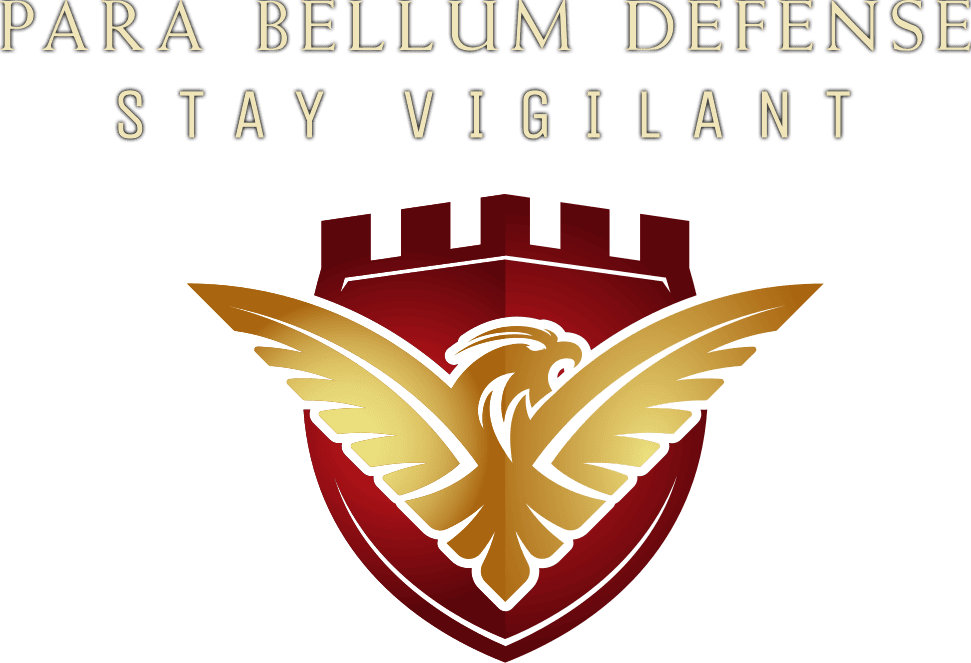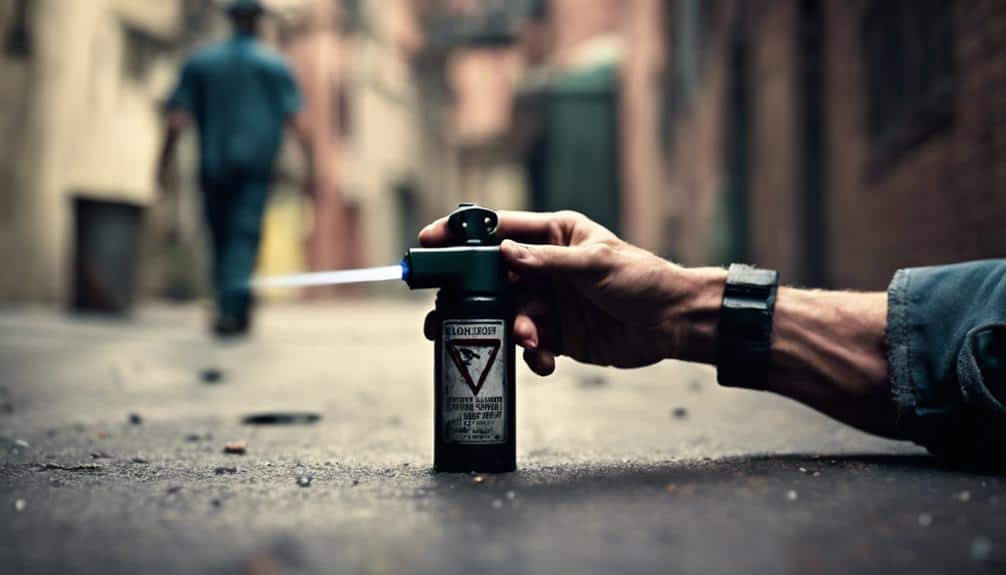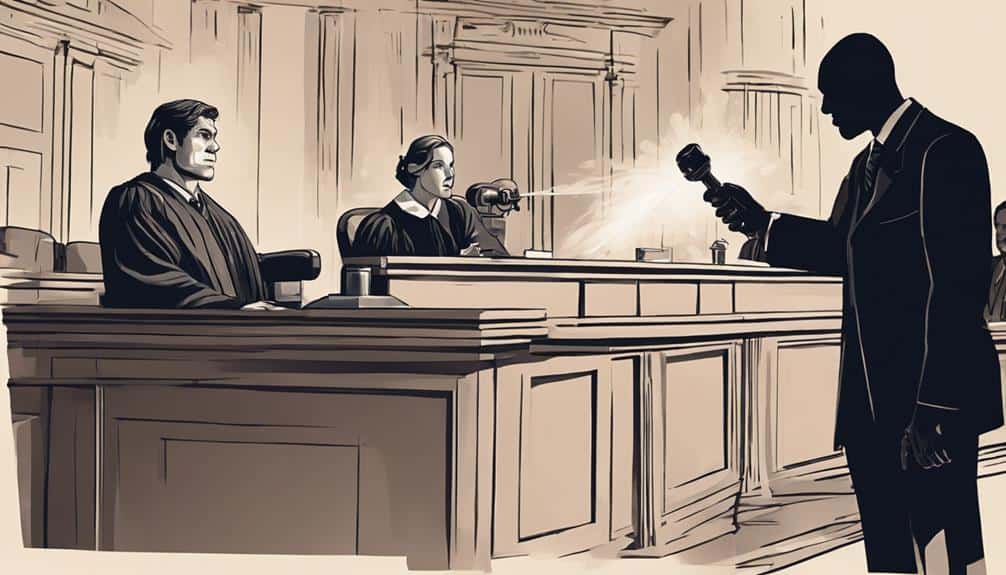If someone sprays you with
pepper spray, you have the right to
defend yourself but stay calm! Pepper spray feels like your face is on fire, and you might start coughing and feel disoriented. Quickly move away, rinse your eyes with water, and gently dab your face. Legally, you can fight back if you’re in immediate danger, but don’t go overboard – just use enough force to protect yourself. If you go all Hulk on them, you might face
legal trouble. Know your local self-defense laws and think about carrying an alarm or studying
self-defense techniques for the future. Want even more tips?
Understanding Pepper Spray
When it comes to
self-defense, understanding
pepper spray is essential for effectively using it in a critical situation. Pepper spray contains
capsaicin, the stuff that gives chili peppers their kick. Imagine that fiery sensation but ten times worse! This causes
immediate pain,
temporary blindness, and breathing difficulties when it hits your attacker. The
Wildfire 1.4% MC Pepper Spray Hard Case, for instance, can be an effective tool, with its UV identifying dye for attacker identification and quick release key chain for accessibility.
You’ve got a few types to choose from: CN, CS, and the most popular, OC (Oleoresin Capsicum). OC is your go-to for self-defense. It’s effective from 3 to 10 feet, so you can keep a safe distance while still packing a punch. Just aim, spray, and watch the bad guy reel in agony.
Pepper spray isn’t just a simple tool; it’s a form of
reasonable force in situations of imminent danger. But don’t get any wild ideas—using it against innocent people or property can land you in hot water, bringing
criminal liability. If you do get sprayed yourself, rinse with cold water to ease the burning. Remember, self-defense isn’t about being a hero; it’s about staying safe. So, keep your cool, know your spray, and stay prepared.
Legal Grounds for Self-Defense
Understanding the
legal grounds for
self-defense is essential when considering the use of
pepper spray. Imagine this: someone suddenly sprays you with pepper spray. Your eyes burn, your skin feels like it’s on fire, and you can’t see a thing. At this moment, your legal right to defend yourself kicks in. Self-defense laws generally allow you to protect yourself against such
unlawful aggression. But here’s the catch—you’ve got to use
reasonable force.
You can’t pull out a baseball bat and start swinging. Your response has to match the threat. If you’re facing
imminent physical harm from pepper spray, a reasonable person would agree that you have to act to stop the attack. The key word here is “reasonable.” Going overboard can land you in hot water, resulting in
criminal liability.
It’s crucial to know your
local laws because they can vary. Some places might have specific rules about how much force you can use in these situations. So, before you find yourself in a sticky situation, brush up on your local self-defense regulations. This knowledge could be the difference between walking free and facing legal trouble.
Non-Lethal Defense Options
When you’re hit with
pepper spray, you don’t have to feel helpless; there are
non-lethal defense options to evaluate. Using a
personal alarm or whistle can instantly draw attention and scare off an attacker, while a
tactical flashlight can temporarily blind them, giving you a chance to escape. For those who want to fight back,
stun guns and personal tasers can incapacitate without causing lasting harm. The dual functionality of tools like the
100 million Volt Bouncer Stun Gun, which combines a high-voltage stun feature with a bright LED flashlight, guarantees you are prepared for various scenarios. Simple
self-defense techniques can help you minimize the impact and get away safely.
Effective Countermeasures
To effectively defend yourself against pepper spray, you should consider several non-lethal options that can minimize harm and maximize your safety. First off, if you’re hit with pepper spray, move away from the source quickly. This helps reduce exposure and lets you breathe more easily. Next, rinse your eyes with cold water for at least 15-20 minutes to alleviate the burning and irritation caused by the capsaicin in the spray. If it’s handy, use a saline solution or eye wash designed for chemical exposure, as these can be more effective than water alone.
Also, gently dab your face with a clean cloth. Don’t rub, or you’ll spread the chemical and worsen the irritation. And if symptoms persist or get worse, seek medical help immediately. Some folks might have severe reactions to pepper spray, so don’t hesitate to get checked out.
Here’s a quick table to keep these steps handy:
| Step |
Action |
Purpose |
| Move Away |
Get away from the spray source |
Minimize exposure |
| Rinse Eyes |
Use cold water or saline for 15-20 min |
Alleviate irritation |
| Dab Face |
Gently dab with a clean cloth |
Prevent spread of chemical |
Legal Defense Strategies
Occasionally, you might find yourself in a situation where you need to defend against someone after being pepper sprayed. First, it’s essential to understand that
self-defense is your right, but it hinges on having a
reasonable fear of
imminent harm. You can use
legal force, but it must be proportionate to the threat. So, if someone sprays you, don’t respond with
excessive violence—think carefully!
Documenting the incident is your best friend here. Note everything: the time, place, what the aggressor did, and any witnesses. This evidence can make or break your case if things escalate legally. Additionally, consider equipping yourself with
non-lethal defense options such as
Pepper Shot sprays that can be used in emergencies. And don’t forget, self-defense laws vary by state, so be sure you know your local rules.
Using non-lethal defense options is usually justified when you face an immediate threat. Just remember, you don’t want to
escalate the situation unnecessarily. Legal force should match the level of danger you’re in.
Alternative Self-Defense Methods
Protecting yourself doesn’t always mean resorting to lethal measures;
non-lethal defense options can effectively
deter or stop an attacker without causing permanent harm. Imagine this: you’re walking home at dusk, and suddenly, someone approaches you with ill intent. What do you do?
First, consider carrying
personal alarms. These little gadgets emit ear-piercing sounds that can scare off
attackers and
draw attention from bystanders. They’re especially handy in crowded places where someone’s bound to notice the commotion.
Next up,
tactical flashlights. These aren’t your ordinary flashlights; they’re designed to
temporarily blind and disorient anyone aiming to harm you. Some even have a
strobe function, making it even harder for an assailant to see. Another excellent choice is the
Kubotan Aircraft Grade Aluminum Keychain, which is not only durable but also effective for targeting nerve points and soft tissues.
Don’t forget about
self-defense keychains. These can look like innocent accessories but pack a punch with pointed ends or other tools to help you strike back while keeping a safe distance.
Safety whistles are another fantastic option. Blow one loudly and repeatedly, and you’ll alert everyone nearby that something’s wrong.
Lastly,
expandable batons, although they require some training, can be a powerful deterrent. They’re portable, legal in many places, and can give you the upper hand when things get physical.
Importance of De-escalation
When you’re caught in a
tense situation, staying calm and talking things through can be your best bet. Recognizing when things are heating up and knowing how to cool them down with non-threatening body language and
calm words can make a world of difference. After all, wouldn’t you prefer to walk away unharmed and without any legal drama rather than getting into a fight?
Calm Communication Techniques
Effective communication techniques, like
active listening and keeping a
calm demeanor, can greatly
reduce the chances of a conflict escalating during a volatile situation. Imagine you’re in a tense encounter, and someone’s just sprayed pepper spray. Instead of panicking, take a deep breath and focus on effective communication. By staying calm, you show confidence and control, which can help
de-escalate the situation.
Use
open body language and a non-threatening tone. It’s amazing how much a relaxed posture and a gentle voice can diffuse tension. Say things like, “I understand you’re upset,” to acknowledge their feelings. This simple act of empathy can be a game-changer in
conflict resolution.
Avoid aggressive language or gestures. Instead, practice
verbal de-escalation techniques regularly. The more you rehearse, the better you’ll get at staying composed and communicating effectively during real-life confrontations. This isn’t just about self-defense; it’s about preventing the situation from spiraling out of control in the first place.
Recognizing Escalation Signs
Recognizing the
early signs of escalation is essential for anyone aiming to maintain
personal safety and prevent conflicts from turning violent. Imagine you’re in a heated discussion; noticing
aggressive body language or hostile verbal threats can be your first clue that things might get out of hand. It’s like seeing storm clouds before a downpour—you know trouble’s brewing.
To stay safe, use
de-escalation techniques. Keep a
calm demeanor and speak in a non-threatening tone. This can be the difference between a peaceful resolution and a physical altercation. Think of it as defusing a bomb; a gentle touch can save the day. Studies show most conflicts can be resolved without physical confrontation when
effective communication and empathy are in play. So, don’t underestimate the power of your words.
Always be aware of your surroundings. Avoid isolated or dangerous areas where help might be far away. If things escalate,
self-defense from personal injury becomes vital. But, remember, proactive measures are key. Training in
conflict resolution and recognizing signs of escalation can make you a peacekeeping ninja, dodging trouble before it strikes. Stay sharp, stay safe!
Non-violent Conflict Resolution
Spotting the signs of escalation is just the first step; the real challenge lies in what you do next. Non-violent conflict resolution hinges on de-escalation strategies to keep things from spiraling out of control. Imagine you’re in a heated argument, and tempers are flaring. What can you do?
Here are four key steps:
- Active Listening: Pay close attention to what the other person is saying. Nod, make eye contact, and show you’re engaged.
- Use “I” Statements: Express your feelings without blaming. For example, “I feel upset when…” instead of “You make me angry.”
- Maintain a Calm Demeanor: Keep your voice steady and your body language relaxed. A calm presence can be incredibly disarming in conflict scenarios.
- Acknowledge Feelings: Let the other person know you understand their emotions. A simple, “I can see you’re really frustrated,” goes a long way.
Effective communication is a cornerstone of non-violent conflict resolution. Training programs can equip you with these skills, helping you manage disputes peacefully. By recognizing triggers early, you can intervene before things get out of hand, promoting a safer environment for everyone involved. So, next time you’re in a tense situation, remember these tips!
Legal Consequences of Retaliation
Retaliating against someone who pepper sprays you can land you in
serious legal trouble, potentially facing
charges like assault or battery. When you retaliate, you’re walking a fine line. Legal justification for
self-defense means your response has to match the threat. If you go overboard and use
excessive force, you could end up with
civil liability on top of criminal charges.
Imagine this: someone sprays you, and your
immediate reaction is to hit back. In court, you’d have to prove that your actions were necessary to prevent further harm. That’s pretty tough to do, especially if the original attack wasn’t life-threatening. Many jurisdictions will look at the whole picture, so if they think the pepper spray wasn’t a big deal, your retaliation might be seen as unjustifiable.
Even if you’re genuinely scared and think you’re defending yourself, the law might see it differently. You’d need clear evidence that your actions were
reasonable and necessary. So, while your instincts might scream “fight back,” it’s essential to remember that what feels right in the moment could have serious
legal consequences later on.
Seeking Legal Counsel
Understanding the serious legal consequences of retaliation underscores the importance of seeking legal counsel when dealing with a pepper spray incident. Imagine this: you’ve just been pepper sprayed. Your eyes are burning, and you can barely see. Your first instinct might be to fight back but wait! Before you do anything, you need to understand your legal rights. Whether you’re using a
defense spray for protection or responding to an attack, knowing the legal boundaries is essential.
Here’s why getting a defense lawyer is vital in self-defense cases:
- Clarify Your Rights: A lawyer will help you understand the specific self-defense laws in your area, guaranteeing you know when and how you can respond using reasonable force.
- Assess Reasonable Force: They’ll evaluate if your reaction was proportional to the threat. This is key in showing your actions were justified.
- Avoid Criminal Charges: If there’s a chance you could face criminal charges for your response, a defense lawyer will strategize to protect you.
- Gather Evidence: Your attorney will collect witness statements, video footage, and any other evidence to build a strong case in your favor.
Don’t try to navigate this alone. Secure legal counsel to guarantee you’re properly defended and understand every step of the legal process.
Practical Safety Tips

When you’re hit with pepper spray, it’s crucial to take immediate action to minimize its effects. First, get to a well-ventilated area to reduce exposure to the irritant and let your eyes start clearing. Trust me, gasping for air in a cramped space won’t do you any favors. Next, rinse the affected areas with cold water for at least 15 minutes. It might feel like an eternity, but it’ll help alleviate that fiery sensation and flush out the capsaicin.
Avoid rubbing your eyes or face, no matter how tempting it is. Rubbing will only make things worse. If you have saline solution on hand, use it generously. It’s much more effective than water in washing away those nasty chemicals. And let’s face it, nobody wants to look like a raccoon on fire.
If you experience severe symptoms, like difficulty breathing or prolonged eye irritation, seek medical attention immediately. It’s better to be safe than sorry. Remember, if it leads to an injury or an arrest, law enforcement will determine if reasonable force was used.
Here’s a quick reference table:
| Action |
Why it Helps |
Do’s and Don’ts |
| Move to open space |
Reduces exposure |
Do: Find fresh air, don’t: Stay put |
| Rinse with water |
Alleviates burning |
Do: Use cold water, don’t: Use hot water |
| Avoid rubbing |
Prevents further irritation |
Do: Gently dab, don’t: Rub vigorously |
Stay calm, act fast, and keep these tips in mind to handle the sting of pepper spray like a pro!
Frequently Asked Questions
Can You Defend Yourself with Pepper Spray?
Yes, you can defend yourself with pepper spray under self-defense laws. However, be aware of pepper spray regulations in your area. Using pepper spray for personal safety must be justified to avoid legal consequences. Training is essential.
Is Spraying Someone with Pepper Spray Assault?
Absolutely, spraying someone with pepper spray can be considered assault. The legal implications depend on your jurisdiction’s assault definitions. While self-defense laws exist, the pepper spray effectiveness and your personal safety actions must be reasonable.
Can I Pepper Spray Someone Who Won’t Leave Me Alone?
You can use pepper spray if someone won’t leave you alone but make certain it’s within self-defense laws. Remember, proper pepper spray usage is for personal safety. Non-lethal weapons can have legal consequences if misused, so assess the threat carefully.
What Happens When Someone Pepper Sprays You?
When you’re hit by pepper spray, it’s like being engulfed in flames. The effects of pepper spray include intense pain, temporary blindness, and breathing issues. Recovery time varies, but legal repercussions and health risks should make you cautious.








